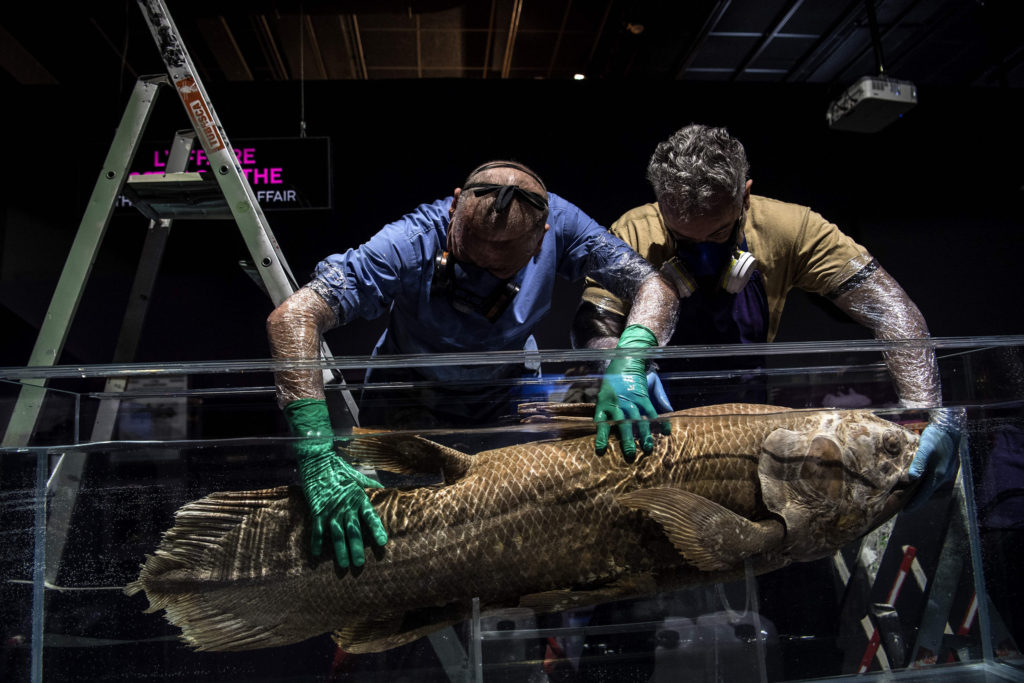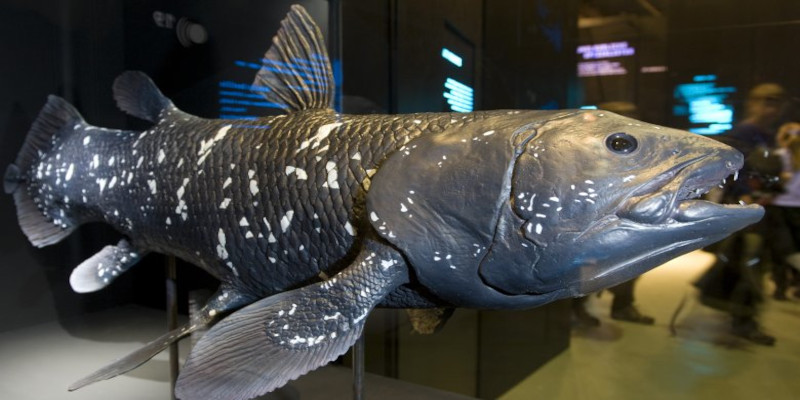A group of South African hunters has re-discovered unintentionally a fish population predating dinosaurs that are thought to have been extinct in several scientific communities.
According to a study, the “four-legged fossil shark” known as the coelacanth has been discovered alive and well in the West Indian Ocean off the coast of Madagascar.

Coelacanths were resurrected from extinction in 1938, and now that they’ve been discovered alive and well again, marine scientists are pushing for stronger conservation steps to preserve the 420 million-year-old fish.
Since they resurfaced, more of the fish have been caught off the coastlines of South Africa, Tanzania, and the Comoros Islands.
It’s believed the discovery of coelacanths comes in the wake of the ongoing increased demand for shark fins and oil. This has led to fishers having to delve their gill nets further into the ocean near where the formerly extinct fish gather.
Fishermen using gillnets in shark-hunting expeditions are contributing to their resurgence. The high-tech deep-sea nets will hit where coelacanths gather, around 328 to 492 feet below the water’s surface, while they seek to hunt sharks for their fins, oil, and other commercial enterprises.
The 420 million-year-old species was believed to be extinct until 1938 when the first living coelacanth in modern memory was found off the coast of South Africa. Scientists were astounded to discover a member of the “Latimeria chalumnae” genus, complete with eight fins, a unique spotting pattern on the scales, and enormous bodies, still alive.
The increase in shark hunting, which started booming in the 1980s, may pose a new threat to the coelacanths, according to a recent study published in the SA Journal of Science.
They are concerned that the coelacanths are now being “exploited,” especially in Madagascar.
Their study goes on to say that, since Madagascar is likely to be the “epicenter” of numerous coelacanth subspecies, conservation efforts to save the ancient species are critical.
The coelacanth isn’t the only animal that has been rediscovered since being “extinct” in its native habitat. For the first time in 23 years, a highly venomous sea snake was discovered in Australia in April.
Picture Courtesy: grunge.com







Leave a Reply